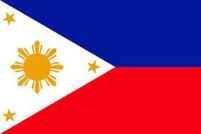
MANILA (Mindanao Examiner / Nov. 27, 2012) – Eight years after the passage of the Republic Act 9262 or Anti-Violence Against Women and their Children, violence against women continues to persist as one of the Philippines’ pervasive social problems.
The Women and Children Protection Center of the Philippine National Police recorded 12,948 VAW cases during the first eight months of 2011 or 69.7%of which were violations of the Anti-VAWC law.
The reported cases under RA 9262 increased from 218 in 2004 to 9,974 cases in 2010. Similarly, VAW cases in all categories (including rape, physical injuries and sexual harassment) increased an average of 26.9% annually from 2006 to 2010. The biggest annual increase (59.2%) was recorded in 2010 with 15,104 cases, compared with 9,485 cases in 2009.
“The data is very alarming. The figures are not even conclusive as they are based only from what were reported to the PNP. There should be a system to consolidate VAW information from all sources, and to disseminate such for proper appreciation and intervention,” Sis. Eva Arcos, General Secretary of the Associated Labor Unions National Committee on Women, said in a statement sent to the regional newspaper Mindanao Examiner.
Arcos said many VAW victims still chose to keep their experiences to themselves to protect the family from shame. She also noted that even the National Demographic and Health Survey conducted by the National Statistics Office recognized that a greater challenge now is the lack of concrete information on the extent of VAW in the country as many of these cases go unreported.
“We must provide a listening, just and empowering environment to break the culture of silence. Mechanisms or structures must be in place to prevent and address VAW, with safety, healing and empowerment of victims and/or survivors and accountability of offenders as core goals. Information and education campaign on the law and its strict implementation, including effective operation of intervention structures like local-level women’s desks are critical. The use of social media and global solidarity campaigns can help give human face to the extent and gravity of VAW,” she said.
